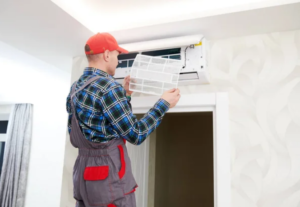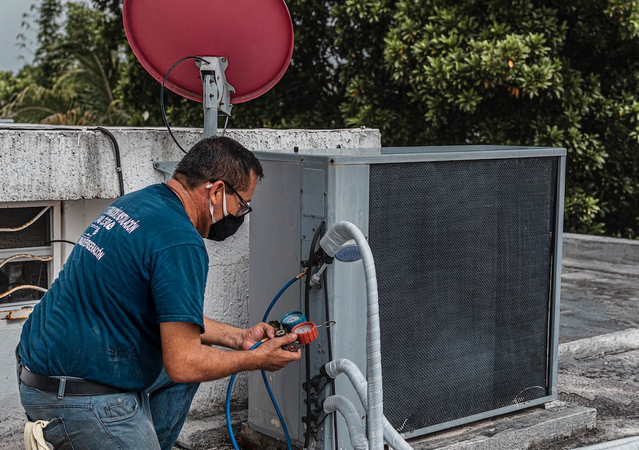
The Role of HVAC in Achieving Home Comfort and Energy Efficiency
HVAC systems have become an essential component of modern homes. They are responsible for maintaining a comfortable indoor temperature regardless of the outside weather conditions. However, their role goes beyond just providing comfort. HVAC systems also play a crucial role in achieving energy efficiency. One of the main functions of HVAC systems is to regulate the temperature and humidity levels in a home, which helps to create a comfortable living environment. When doing ac heating repair, most technicians focus on improving the efficiency of these systems to ensure that homeowners get the best out of their HVAC units.
Importance of Energy Efficiency in HVAC Systems

The heating and cooling of a home consume a significant amount of energy, making them the largest contributor to household utility bills. Therefore, any improvements made to increase the efficiency of these systems can lead to substantial cost savings for homeowners. With the increasing focus on environmental sustainability and reducing carbon footprint, energy-efficient HVAC systems have become more crucial than ever before. Energy-efficient HVAC systems not only save homeowners money but also benefit the environment by reducing greenhouse gas emissions. These systems consume less electricity or fuel to operate, resulting in a lower carbon footprint. This, in turn, contributes to a healthier and more sustainable planet for future generations.
Factors Affecting Energy Efficiency in HVAC Systems
 Several factors can impact the energy efficiency of HVAC systems. These include the age and condition of the system, the type of fuel or energy source being used, and the design and installation of the system. Older systems tend to be less efficient compared to newer models due to advancements in technology and stricter standards set by regulatory bodies. Regular maintenance is also crucial in ensuring that HVAC systems operate at peak efficiency levels. Clogged air filters, dirty coils, and leaky ducts can all contribute to decreased efficiency and higher energy costs. When installing a new HVAC system, the sizing and layout of the unit also play a significant role in its efficiency. A properly sized and installed system can save homeowners money in the long run by avoiding unnecessary repairs or replacements.
Several factors can impact the energy efficiency of HVAC systems. These include the age and condition of the system, the type of fuel or energy source being used, and the design and installation of the system. Older systems tend to be less efficient compared to newer models due to advancements in technology and stricter standards set by regulatory bodies. Regular maintenance is also crucial in ensuring that HVAC systems operate at peak efficiency levels. Clogged air filters, dirty coils, and leaky ducts can all contribute to decreased efficiency and higher energy costs. When installing a new HVAC system, the sizing and layout of the unit also play a significant role in its efficiency. A properly sized and installed system can save homeowners money in the long run by avoiding unnecessary repairs or replacements.
Tips for Improving Energy Efficiency in HVAC Systems

To achieve optimal energy efficiency in HVAC systems, homeowners can take several steps. These include regular maintenance and tune-ups, investing in a programmable thermostat to regulate temperature settings, sealing any air leaks in the home, and upgrading to energy-efficient models when replacing old units. Additionally, proper insulation and ventilation are critical for maintaining a comfortable indoor environment while reducing the workload on HVAC systems. Simple actions, such as closing curtains during hot summer days or opening windows for natural ventilation instead of running the air conditioner, can also contribute to energy savings.
HVAC systems are essential for achieving home comfort and energy efficiency. By understanding their role and implementing proper maintenance and upgrades, homeowners can maximize the benefits of these systems while reducing their environmental impact. As technology advances, we can expect even more energy-efficient HVAC systems in the future, contributing to a greener and more sustainable world. So make sure to take care of your HVAC system and reap its rewards for years to come.
